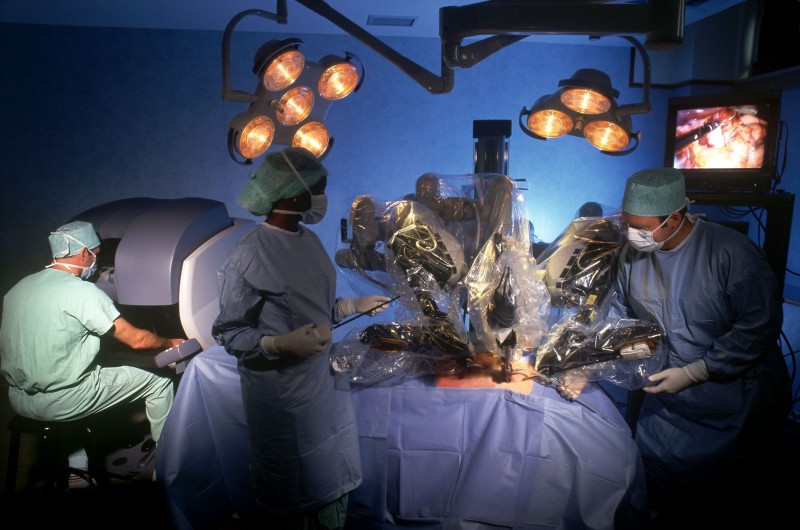Robotic surgery is a new medical technology that has been rapidly embraced and promoted by many hospitals in what has been described as a “technology arms race.” Many people believe that robotic surgeries are better than conventional surgeries, but a new research has found that robotic surgery isn’t any better than conventional approaches, rather it is a way of doing the surgeries in an expensive way.

Many hospitals eager to attract patients, compete with other nearby hospitals and increase revenue advertise that their doctors use the newest technologies available, implying that these technologies represent significant advances in medicine that are better than older treatments. Sometimes, new technologies are introduced into clinical practice without having undergone rigorous clinical testing comparing them to older, more proven treatments. As a result, many new medical technologies are widely and rapidly adopted without evidence that they are safer or more effective than their predecessors.
But when researchers at Johns Hopkins looked at the data from 244,129 colectomies (procedures to remove part of or all of the colon), which can be done by both robotic surgery and conventional surgery, they discovered that both approaches had similar complication and mortality rates, and that patients spent similar amounts of time in the hospital following the procedures. That means, robotic surgeries have no further advantages in terms of medical complication rates. The only major difference was cost, with the robotic surgery running an average of nearly $3,000 more due to expensive disposable parts needed for each procedure.
Dr. Nita Ahuja, lead author of the study said, “The true test of something new in medicine should be: Is it better? Is it safer? Does it save money? If not, then we probably shouldn’t be using it.”
Robotic surgery is equivalent to conventional surgery, but not better than that. At present, it provides no measurable outcome benefits and is likely significantly more expensive. On the other hand, this study suggests that although doctors and hospitals are optimistic about robotic techniques, they shouldn’t exaggerate the benefits of robotic surgery to people while there is no further benefits in comparison to conventional surgery. Therefore, future randomized studies of robotic surgery must focus on identifying advantages of robotic techniques rather than on demonstrating equivalence to conventional surgery.
Source: Jama Surgery
Thanks To: The Verge
[ttjad keyword=”kindle”]


